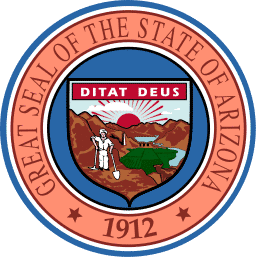…
There are six physical therapy assistant schools in Arizona—from the Phoenix area to Tucson, Flagstaff, and Havasu City. There are four privately owned institutions and two public community colleges.
The schools have the accreditation that state officials require. Graduates are eligible to apply for certificates to practice in the state. They must pass two examinations.
This field is booming in the Grand Canyon State, with 280 PTA job openings expected every year during the 2016-26 decade. Employment is found at nearly two dozen facilities that hire multiple practitioners, as well as in smaller businesses.
You Might Also Like:

Officials on this panel evaluate educational and other qualifications of applicants for certification. They provide for national and state examinations, and determine passing scores.
The board regulates practitioners to ensure they comply with legal and ethical standards. It conducts investigations of allegations and complaints, issuing subpoenas to witnesses to appear at hearings. PTAs who violate state statutes are subject to disciplinary procedures such as certificate suspensions or revocations.
These officials also license physical therapy businesses that comply with rules concerning practitioner qualifications, recordkeeping, and other matters.
The board, appointed by the governor, consists of four PTs, one PTA, and two public members who are state residents unaffiliated with the industry.
The journey to become a physical therapist assistant in Arizona starts with the completion of high school. An alternative is to secure a general education diploma. Biology and health classes aid in preparing prospective practitioners for career training.
The state board issues certificates to those who graduate from PTA schools that the Commission on Physical Therapy Education sanctions. CAPTE grants accreditation to postsecondary institutions with specified curricula and qualified faculty. The organization also mandates that a high percentage of a school’s students graduate, pass the licensing exam, and find jobs.
Arizona is different than most other states in that it does not require PTAs to periodically earn continuing education credits.
PTA school graduates are still not quite ready to go to work. First, they need to contact the board online to file for certification. Among the application requirements are school transcripts and fingerprints.
Students also must ask the board for permission to take the National Physical Therapy Examination (NPTE), for which the Federation of State Boards of Physical Therapy charges a fee of about $400. The exam is administered at Prometric testing centers in Phoenix, Tucson, Tempe, Flagstaff, and Goodyear.
NPTE questions address therapeutic methods, interventions, data collection, safety and protection, equipment and devices, and professional responsibilities. A 600 score on an 800-point scale is necessary to pass the test.
In addition, certificate applicants must successfully complete the Arizona Physical Therapy Jurisprudence Exam. The board provides a candidate handbook to help students prepare.
Certificates are to be renewed in odd-numbered years.
We selected the schools below based on the programs that they offer, accreditation, student population, graduation rate and reputation.
View our Ranking Methodology to learn more about how we rank schools.

10%
4071
The PTA program on this public school’s Lake Havasu City campus awards AAS degrees. The two-year, six-semester, 75-credit curriculum features three clinical practicums.
Students take the standard courses, as well as English Composition, Patient Mobility Techniques,, Electromodalities, Wound Care, Introduction to Computer Information Systems, Clinical Neurology, and Rehabilitation of Special Populations.
The program accepts 20 students who take a placement test and general education classes. Biology Concepts, with a lab, is a prerequisite course. All faculty members hold doctorate degrees in PT. The school boasts a “fully equipped PT lab” and “state-of-the-art computer technology.”
87%
541
This privately owned chain of schools has campuses in six states, with PTA programs in four of the locations. The Mesa site is near the Fiesta Mall.
Students receive AS degrees for completing 74 credits in 80 weeks. Courses include Physics, Introduction to Psychology, and Advanced Concepts for PTA. General education requirements cover English composition, computer literacy, mathematics, and social sciences.
The program ends with clinical assignments in a variety of healthcare settings. The school provides tutors and study groups, and career services like interviewing tips and job-search assistance. Nearly all graduates find employment in the field.
47%
1251
A private institution with four locations, Brookline has programs in more than 20 fields. PTA students attend classes at the campus on West Dunlap Avenue.
The curriculum, involving 75 weeks of study, totals 73 credits and 1,645 contact hours. Classes take place on weekday mornings. In addition to the typical subjects, courses include Rehabilitation Across the Lifespan; PT Professional Issues; and general education in science, English, math, and social science. Three clinical rotations provide 640 hours of real-world experience.
The school offers free child day care to low-income students, and reports a 100 percent employment rate for graduates.
21%
5081
A public school in Phoenix, GCC offers an AAS program on its Washington campus.
The program, with 66-73 credit hours, lasts two years. Along with the usual coursework, students take Musculoskeletal Assessment Techniques, Patient Mobility Techniques, Rehabilitation of Special Populations, Electromodalities, Wound Care, and Psychology. Three practicums in clinics complete the curriculum.
Applicants need to show evidence of having 40 hours’ paid or volunteer experience in PT settings. They must complete prerequisites in anatomy and composition. There are general education classes in composition, communication, reading, reading, humanities and arts, social and behavioral sciences, and natural sciences.
70%
1851
This private school operates campuses in Mesa and Tucson. The 18-month AAS program entails 655 clock hours in classes, 291 hours in labs, and 640 hours in clinics.
The curriculum features general education and standard technical courses, plus Math & Physics Applications, Law & Ethics, Growth & Development, Administrative Procedures, and Special Topics.
The degree can lead to a bachelor’s of science in PTA, which involves 15 months of online classes. Among the courses are Technical Writing, Microcomputer Applications, Chemistry, Culture and Human Diversity, Healthcare Management, Research Methods, Evidence-Based Practice, Critical Thinking, Inpatient or Outpatient Care Practice, Pharmacology, and Practice Specific Rehabilitation.
These schools offer three types of degrees: Associate in Science (AS), Associate in Applied Science (AAS), and Bachelor of Science (BS). The AS is for students planning to transfer to four-year institutions to seek bachelor’s degrees. The AAS is a career program that qualifies graduates for certification and employment.
Those in associate programs graduate within two years or sooner. The BS takes nearly four years. The instruction and training consist of theory and hands-on experience through lectures, labs, and clinics.
Standard courses cover medical terminology, human anatomy and physiology, kinesiology, pathology, PT modalities, therapeutic exercise, physical agents, orthopedic and neurological rehabilitation, data collection, and communication.
$21
$43,800
51%
A practitioner in the median income range can expect to make over $43,800 annually or $21 hourly—less than the $58,000-plus or nearly $28 that the typical PTA earns nationwide.
Salaries and wages for the highest 10 percent are almost $74,900 and $36 in Arizona, compared to more than $79,800 and close to $39 for the whole country. Income among the state’s lowest 10 percent is over $26,300 or $12.60, with national rates of nearly $33,800 or about $16.25.
An astounding 51 percent job-growth rate is forecast here from 2016 to 2026, which would increase the number of positions from 1,430 to 2,160. Officials project the national rate will be 31 percent.
Sources: U.S. Bureau of Labor Statistics, CareerOneStop

LIMITED TIME DEAL